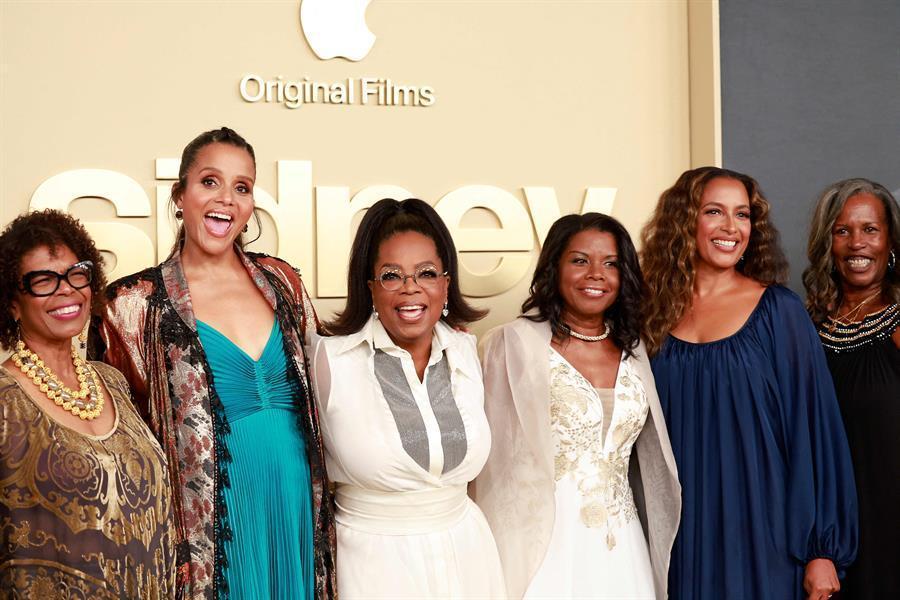
The late Sidney Poitier was at the peak of his Hollywood career when he came under fire from Black activists and intellectuals, accused of playing stereotypical, safe roles for white audiences just as the 1960s civil rights movement was exploding.
“Sidney,” the new Apple TV+ documentary out on Sept. 23, produced by Oprah Winfrey and featuring A-list talking heads from Denzel Washington and Morgan Freeman to Barbra Streisand and Robert Redford, sets out to show why they were wrong.
“The reality is, since the invention of cinema there had been these degrading images of Black people, and Sidney Poitier
single-handedly destroyed those images, movie after movie after movie,” the film’s director Reginald Hudlin told AFP.
“He was a race warrior. Without him, you don’t have me, and you don’t have Oprah Winfrey, and you don’t have Barack Obama.”
It is one of several debates at the heart of “Sidney,” which features interviews Poitier gave to Winfrey years before his death in January at the age of 94.
The film addresses Poitier’s affair during his first marriage to Juanita Hardy, a potentially prickly topic as she and all three of their surviving daughters are interviewed for the documentary.
“When I first sat down with the family, to talk about the possibility of making the movie, I said, ‘Is anything off limits?’ And I specifically brought up that as an example,” said Hudlin.
“They were like, ‘No, no, no, we want to tell the whole truth.’ So I appreciate the fact that they were not interested in just doing a puff piece.”
The film also delves into terrifying moments of racist violence in Poitier’s life.
In 1964, Poitier and Harry Belafonte were pursued through Mississippi by gun-toting Ku Klux Klan members while delivering cash to a voting rights movement.
An earlier run-in with the Klan, and a white policeman who harassed a teenage Poitier at gunpoint, are presented as formative in his pioneering career and his often-overlooked activism.
“That’s what is amazing, he never dissolved into bitterness, he never let them break him,” said Hudlin.
“He just kept turning it into strength, into more determination, into more willpower.”